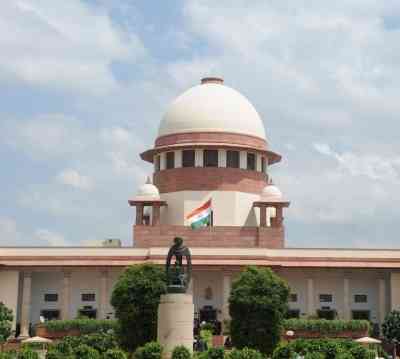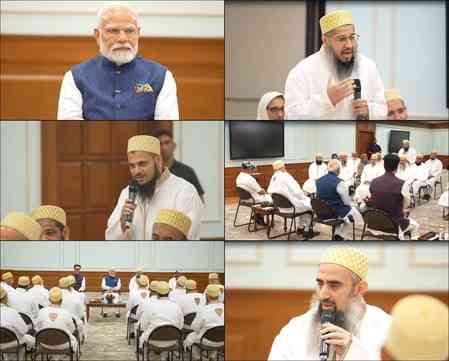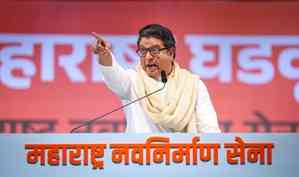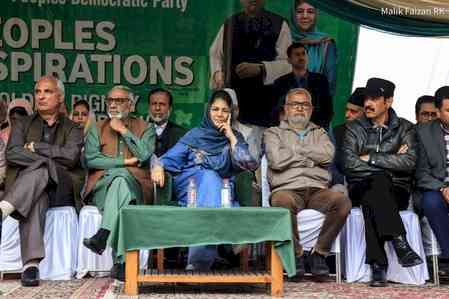SC begins hearing pleas challenging abrogation of Article 370
A 5-judge Constitution Bench of the Supreme Court headed by Chief Justice of India D.Y. Chandrachud on Wednesday commenced hearing on a batch of petitions challenging the 2019 Presidential Order taking away the special status accorded to the erstwhile state of Jammu and Kashmir and its bifurcation into two Union Territories.

New Delhi, Aug 2 (IANS) A 5-judge Constitution Bench of the Supreme Court headed by Chief Justice of India D.Y. Chandrachud on Wednesday commenced hearing on a batch of petitions challenging the 2019 Presidential Order taking away the special status accorded to the erstwhile state of Jammu and Kashmir and its bifurcation into two Union Territories.
The Constitution Bench, also comprising Justices Sanjay Kishan Kaul, Sanjiv Khanna, B.R. Gavai, and Surya Kant, would hear the matter consecutively starting from August 2, except for Mondays and Fridays.
The petitioners' side has submitted a note to the Constitution Bench, through the nodal counsel appointed by the court, saying that it will take around 60 hours for oral arguments.
Senior advocates Kapil Sibal, Gopal Subramanium, Rajeev Dhavan, Dushyant Dave, Shekhar Naphade, Dinesh Dwivedi, Zafar Shah, C.U. Singh, Prashanto Chandra Sen, Sanjay Parikh, Gopal Sankaranarayanan, Dr. Menaka Guruswamy, Nitya Ramakrishnan, P.V. Surendranath will advance arguments on behalf of the petitioners and other intervenors in the case.
On the other hand, Attorney General R. Venkataramani and Solicitor General Tushar Mehta primarily will defend the stand of the Union government.
The clutch of petitions was recently heard on July 11 to complete the necessary pre-hearing formalities since March 2, 2020, when another Constitution Bench ruled against the necessity of referring the matter to a seven-judge bench.
A large number of petitions have been filed by political parties, private individuals, lawyers, activists, etc., challenging the Jammu and Kashmir Reorganisation Act, 2019, which downgraded and split Jammu and Kashmir into two Union Territories -- Jammu and Kashmir, and Ladakh.
In an affidavit filed recently before the top court, the Central government has defended the revocation of the special status of Jammu and Kashmir saying that its decision to dilute Article 370 has brought unprecedented development, progress, security, and stability in the region.
The Union Home Ministry said that the street violence, engineered and orchestrated by terrorists and secessionist networks has now become a thing of the past and and the “organised stone pelting incidences connected with terrorism-separatist agenda, which were as high as 1,767 in 2018 has come down to zero in 2023 till date”.
In the pending matter, intervention applications have also been filed by Kashmiri Pandits supporting Centre’s move stripping special status accorded to the erstwhile state of J&K.


 IANS
IANS 








